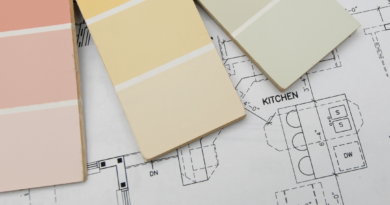The Pros and Cons of a Concrete vs Asphalt Driveway
Is your driveway starting to crack and fall apart in places? It sounds like it might be time to put a fresh one down. When you’re looking at materials, two common ones will pop up often.
Concrete Vs. Asphalt driveway materials. Which is the better choice for your home? That all depends on how much funding you have to put toward your new driveway, the climate you live in, and how long you want your driveway to last.
Check out this guide to learn more about concrete and asphalt and find out which one you should talk to your contractor about.
What is Concrete?
Concrete is a durable material that’s used in driveways and other building projects. Concrete is compared to cement quite often but they aren’t one and the same.
The difference between cement and concrete is that cement is used as an ingredient for concrete. Other materials that are used to create concrete include sand, water, and stone.
What is Asphalt?
Aggregates, filler, and binder all go into the making of asphalt. It’s a sticky, liquid substance that’s used in many driveways and parking lots across the US.
Whether it will stand up to the weight of your vehicle for long periods of time all depends on the quality of asphalt that is used for the job.
Versatility and Aesthetics
The best driveway needs to be able to stand up to the weight of your car and give your home a nice boost of curb appeal while doing it. Asphalt and concrete both come in various shades of black and gray but the main difference is staining.
With asphalt, what you see is what you get for the most part. Concrete is stainable and stampable so you’re more likely to find a look that can match your home.
If you would rather have something subtler that flows with the look of the street, however, asphalt will be the one that can give you that aesthetic.
Weather Conditions
Another serious factor that you should consider before making your choice is the weather conditions in your neighborhood. Asphalt doesn’t stand up well to hot summers.
The material gets a little goopy and then rehardens when the temperature drops. Over time, you’ll start to notice cracks in your driveway.
On the flip side of this, concrete can’t handle harsh winters. The cold weather will crack it. Besides that, the salt that you use to melt snow and ice has the ability to stain concrete.
Speaking of snow and ice, it takes a long time to melt when it gathers on a concrete driveway. That can pose a problem if you need to get out and go to work.
Sealing and Staining
To protect your asphalt driveway, you’ll have to seal it a couple of months after it’s installed. Sealing isn’t that hard of a job but you’ll have to do it every three years or so.
You don’t have to seal concrete. We will say that if you don’t, you’ll have to do a lot of cleaning and degreasing though. Every little stain shows up on concrete.
Asphalt, not so much. Since asphalt is a darker color, you don’t have to worry about oil spills from your car showing up on it.
Maintenance and Repairs
Asphalt and concrete are both pretty durable materials but at some point, they both begin to show their age. When this happens, asphalt will be the easiest one to repair.
You can have the cracked areas patched up or get a new top layer put down. Either way, you won’t see a difference in the overall look of your driveway.
You can repair cracks in concrete too but it’ll be noticeable. It’s better to pay someone to resurface the whole driveway which can be expensive.
Durability
As long as it’s installed the right way and you take care of it, your concrete driveway could last for up to 30 years before you have to replace it. You might be able to get 20 years out of your asphalt driveway.
Still, both have the opportunity to crack after a year or so if the contractor doesn’t install them correctly or if they are put under unfavorable weather conditions.
Dry Times
Once your asphalt driveway is installed, you can drive on it in a few days or so. Concrete takes around a week to dry so you have to stay off of it in the meantime.
That’s not a huge problem unless you don’t have a lot of street parking available to you. If that’s the case, you may want to go with asphalt driveway materials.
Cost
The price of your driveway will vary depending on how complex the job is, how much driveway has to be installed, and the area where you live. Even with these factors in mind, concrete is the more expensive option.
It costs almost 5 dollars per square foot for concrete whereas asphalt costs only around three dollars per square foot.
Environmental-Friendliness
If environmental-friendliness is a huge factor in your decision, you’ll want to go with concrete. It’s created using non-sustainable resources but it’s at least recyclable and will last longer.
Asphalt is also recyclable but petroleum products are used in both the sealing and installation process so it’s not as good for the planet.
Concrete Vs. Asphalt Driveway: Which is Better for Your Home?
Concrete Vs. Asphalt driveway materials. Which one is the better choice for your home? It mainly depends on your budget and the type of climate you live in.
Other than that, both options will offer you long-lasting results if they’re installed the right way and each one has its own unique aesthetic to bring to the table.
Do neither material options sound like they would be a good fit for your home? Check out our blog daily for even more driveway product reviews.



